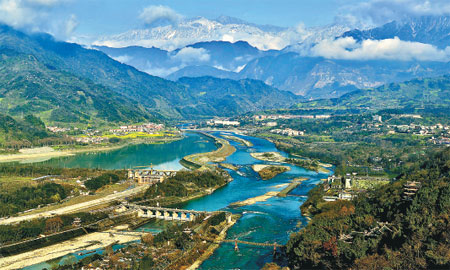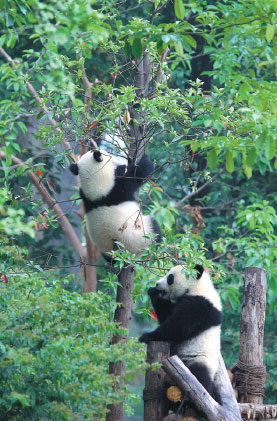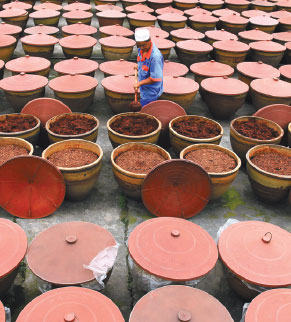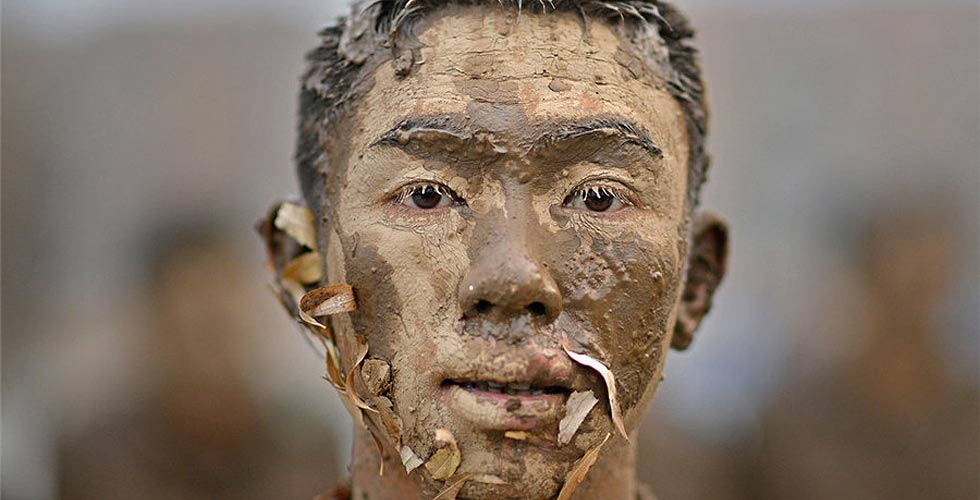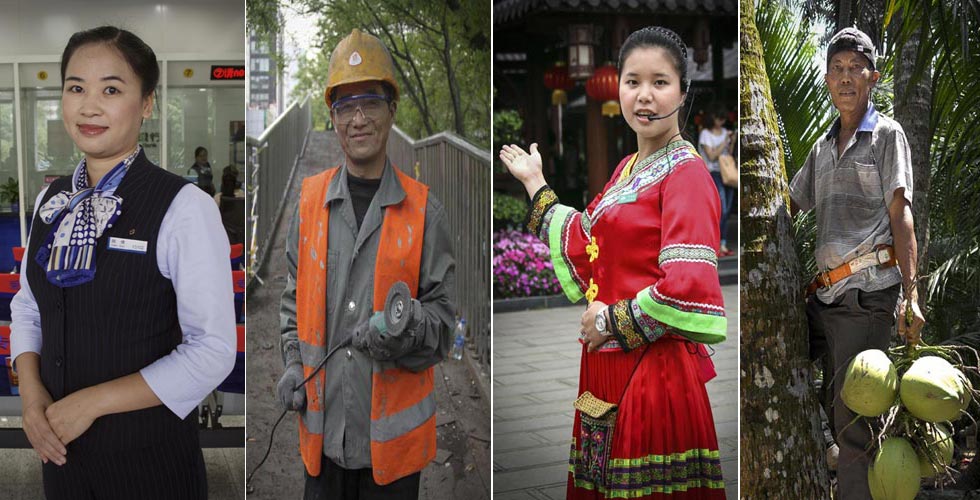Pandas, hotpot and more in Chengdu
Updated: 2014-06-05 06:52
By Li Yu and Yang Cheng (China Daily)
|
|||||||||||
Chengdu's rich culture and abundant history makes it a tourism magnet in Southwest China.
A trip to the city allows foreign visitors to learn about Chinese culture, history and philosophy through its many cultural resources.
Since the start of the 72-hour visa-free policy last year Chengdu has attracted even more visitors and investors.
The city is best known for the panda as it is home to the Chengdu Research Base of Giant Panda Breeding.
Many pandas born and raised at the base are sent to foreign countries as national gifts so the city is also known for its hospitality and diplomatic culture.
The city's food is an attraction in itself and was praised by UNESCO as "a city of gastronomy".
Sichuan cuisine is a must-taste for any food lover and the China Cuisine Cultural Museum is a hotspot in the city.
Pandas and food are just some of the highlights that attract visitors to Chengdu.
Ancient city

Chengdu's history goes back 2,300 years and the city was approved as one of the 24 historical and ancient cultural cities in the early 1980s.
The city's prevailing culture for hard work and visionary strategies make several ancient areas of the city must-sees.
Dujiang Weir in Dujiangyan is the oldest functioning water-control project in the world and is about 59 kilometers west of Chengdu.
The weir has stood for nearly 2,300 years and diverts water to irrigate nearly 70,000 hectares of farmland, which contributes almost one-third of the province's total grain output.
The weir survived the Wenchuan Earthquake unscathed in 2008.
The old dam's longevity can mainly be attributed to a schedule of annual repairs, which date back to the Han dynasty (206 BC-AD 220), and tell the story of the hard work and foresight of local people.
Another popular place to explore the area's history is the Temple of Marquis Wu Museum, also known as the Wuhou Shrine.
The landmark honors Zhuge Liang (AD181 - 234),who is recognized as the greatest and most accomplished strategist of his era - the Three Kingdoms period (AD220-280).
Zhuge has become synonymous with intelligence and strategy in Chinese culture and visitors can get a better understanding of Chinese culture and values by visiting the shrine, said a museum official.
Chengdu citizens created the world's first paper currency - the Jiaozi in AD1023, in the western city's Jiangcong Temple, also known as the Thousands of Buddha's Temple.
The world's earliest natural gas was first discovered in the city too. During the Western Han Dynasty (206BCAD24), Chengdu's citizens discovered natural gas and used it to make salt. During the Tang Dynasty (AD618-907) Chengdu people had some of the best paper printing technologies.
The world's first wooden calendar, which is preserved in the Museum of London, was made in Chengdu during the Five Dynasties and Ten Kingdoms (AD907-960).
Lacquerware relics from the Mawangdui Tombs of the Han Dynasty (206 BC-AD 220), in the eastern suburbs of Changsha, are believed to have been made in Chengdu.
The city is also known as the hometown of Shu embroidery and the birthplace of China's embroidery culture.
Chinese people view tea drinking not just as a daily habit but as an interest and art.
Tea culture in China is believed to have started in Sichuan and several ancient Chinese poems make reference to drinking tea in Chengdu. Xinjin, an area in Chengdu was said to have the earliest trade of tea in the province.
Throughout history a number of Chinese great poets have lived in Chengdu, including Li Bai, Du Fu, Cen Sen, Wei Zhuang, Lu You and Fan Chengda.
Shu state is an ancient region around Chengdu and an old saying goes - "All poets under heaven have come to Shu land."
Relaxed lifestyle
The Fortune Global Forum was held in Chengdu last year, partly due to the city's fast economic growth and ample development potential.
During the event foreign economists and entrepreneurs noted that Chengdu had managed to maintain a balance between fast growth and a relaxed life and attitude, unlike many cities that develop quickly.
Sichuan is known for its relaxed lifestyle and happy people and the area's Taoism culture could be part of the reason why locals lead relaxed lives.
To explore this further many people visit Qingcheng Mountain, which has long been recognized as the birthplace of Taoism.
The area was awarded World Cultural Heritage status by the UNESCO.
Contact the writers at liyu@chinadaily.com.cn and yangcheng@chinadaily.com.cn
|
A glance at the Dujiangyan scenery area. Dujiangyan is world's oldest water control project. Provided to China Daily |
|
Cute pandas at the panda breeding and research base in Chengdu. Zhu Xingxin / China Daily |
|
A worker is making pepper, which is a major ingredient in many dishes from Sichuan cuisine. |
Hot Topics
Wei Guirong drives his granddaughters from kindergarten on his home-made three-wheeled vehicle in Luorong county, Liuzhou city of Guangxi Zhuang autonomous region, on May 19.
Editor's Picks

|
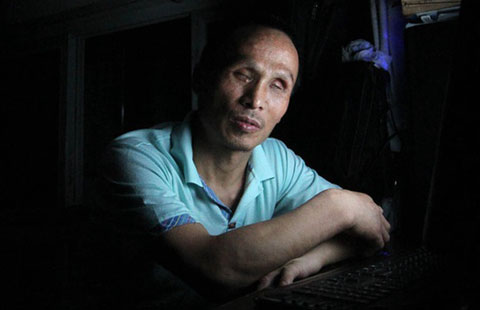
|
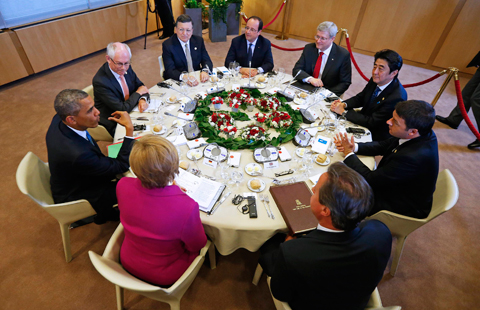
|

|

|

|
